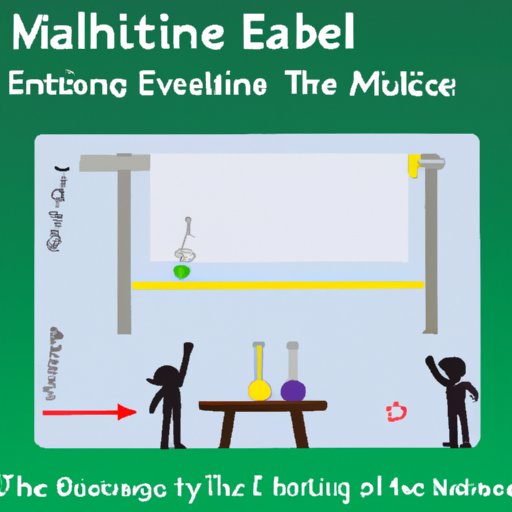Introduction
5th grade science is an important part of a student’s educational journey. This is the time when students begin to explore more complex scientific concepts and develop their critical thinking and problem-solving skills. In 5th grade science, students are introduced to a variety of topics, including physical and life sciences, earth and space sciences, engineering and technology, and applied sciences. They will also gain experience with hands-on activities, such as experiments and projects.

A Comprehensive Overview of 5th Grade Science Curriculum
The 5th grade science curriculum covers a wide range of topics. The most common subject areas include physical science, which focuses on matter and energy; life science, which covers living organisms and ecosystems; earth and space science, which studies the planet and its environment; engineering and technology, which teaches students how to use tools and systems to solve problems; and applied sciences, which applies scientific knowledge to everyday situations. Within each of these subject areas, students will learn about key concepts and processes, such as the scientific method, the nature of matter, photosynthesis, the solar system, and forces and motion.
In addition to these core topics, 5th grade science also incorporates cross-curricular topics, such as mathematics, social studies, language arts, and art. These topics help students to better understand the material they are learning and apply it in real-world scenarios.
Exploring the 5th Grade Science Classroom: Experiments, Projects, and More
One of the most enjoyable aspects of 5th grade science is the incorporation of hands-on activities, such as experiments and projects. Experiments allow students to observe and measure changes in the environment while projects provide an opportunity to design and build something. Examples of experiments include observing plant growth over time, testing air pressure, and measuring the density of different liquids. Project ideas include building a model car or boat, designing a wind turbine, or creating a mini-ecosystem.
Engaging students in hands-on activities is a great way to get them interested in science and help them understand the material. Additionally, it gives them the chance to practice problem-solving and critical thinking skills. As one study from the American Educational Research Association found, “Hands-on activities can increase student engagement, improve understanding of content, and foster problem-solving skills.”
What Makes 5th Grade Science Different from Other Levels?
5th grade science differs from other levels in several ways. For one, it is more focused on problem-solving and critical thinking than lower grades. Students are encouraged to think creatively and come up with solutions to problems. Additionally, 5th grade science has an emphasis on real-world application. Students are expected to take what they have learned and apply it to everyday situations.
How Does 5th Grade Science Prepare Learners for 6th Grade and Beyond?
5th grade science plays an important role in preparing students for 6th grade and beyond. By introducing students to fundamental scientific concepts, it helps them to develop a strong foundation for future learning. Additionally, it encourages students to think analytically and critically, which are essential skills for success in higher-level science classes.

The Benefits of Learning 5th Grade Science Concepts
Learning 5th grade science concepts provides numerous benefits for students. One of the most important is improved problem-solving skills. By engaging in hands-on activities and applying what they have learned to real-world scenarios, students develop their ability to analyze situations and come up with creative solutions. Additionally, 5th grade science helps students to think critically and analytically, which are essential skills for success in any field.
Examples of Fun and Engaging 5th Grade Science Lessons
There are many fun and engaging activities that can be used to teach 5th grade science concepts. Inquiry-based learning is one approach that encourages students to ask questions and explore their own ideas. Interactive activities, such as simulations and games, are another way to engage students and make learning more enjoyable. Finally, field trips and visits from guest speakers provide students with real-world experiences and help them to connect what they are learning with the world around them.
Conclusion
5th grade science is an important part of a student’s education. It introduces students to a variety of topics, such as physical and life sciences, earth and space sciences, engineering and technology, and applied sciences. Additionally, it encourages students to think critically and analytically and prepares them for 6th grade and beyond. The incorporation of hands-on activities, such as experiments and projects, makes 5th grade science fun and engaging. By learning 5th grade science concepts, students gain valuable problem-solving and critical thinking skills.
(Note: Is this article not meeting your expectations? Do you have knowledge or insights to share? Unlock new opportunities and expand your reach by joining our authors team. Click Registration to join us and share your expertise with our readers.)
